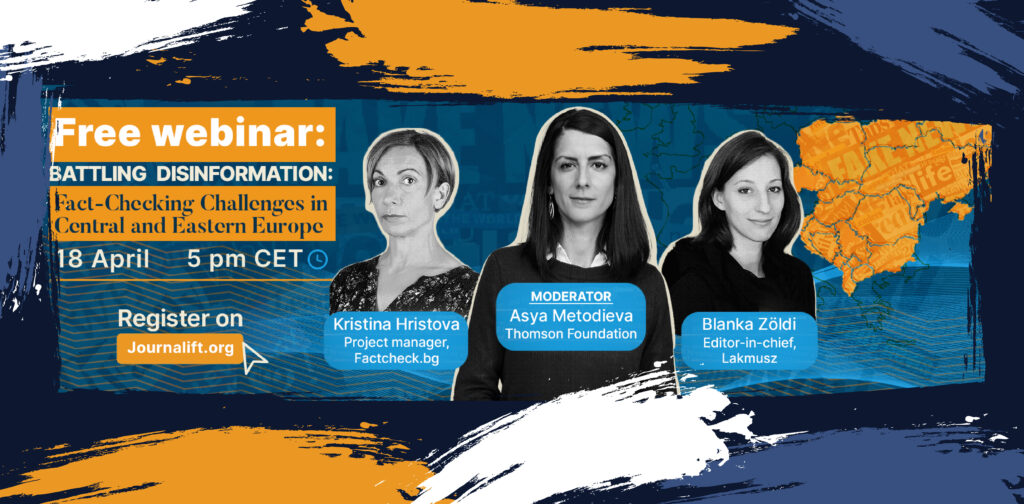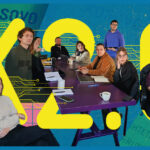If you don’t want to read the whole article, let me answer this simple question: YES. You should broadcast right now. But…
Challenging time for most media outlets has come. Today, we are more than two years in COVID-19 era, and still no end is on the horizon. Media has suffered a lot. I had contacts with many small, local stations in Balkan region, and they have almost the same problems. Guess what? It’s not about COVID-19. Sure, there aren’t that many ads as they have had before, and cash flow could be better, but the main problem is: Radio is losing its battle to survive. But it can win and be even stronger than ever before.
How? Let me explain this.
First of all, let’s define the cause. People who work in radio think it’s not cool to be there. I have heard many reasons: “We cannot compete with streaming services'', “Our paychecks are smaller than our bills”, “Nobody listens to me”, “Everybody wants video content”, “Podcasts are more attractive”, etc.
While I would agree with many statements, it doesn’t mean that they are bad for us (broadcasters). Those statements should be guidelines:
If we talk about podcasts, we (people from radio) know how to podcast. So, we can produce better podcasts than almost every podcast beginner. Right?
We have listeners – all relevant research tells us that radio is listened to in every age category. Video is important. But radio isn’t TV, YouTube, and it doesn’t need 24/7 video content. If you don’t have video content at your station – start to produce it.
This is a short reaction to some statements from above.
There is no magic wand, that is what I tell to every media outlet that I work with – radio really cannot compete with some real threats out there. Let me present you:

Four horsemen of the radiocalypse
1. Streaming services
We really cannot kill this guy. Streaming services (Deezer, Tidal, Spotify, Amazon music, …) have AI that no station can have. This rider knows in person every single music taste for all of us. Every time we click “like”, “dislike” or skip a song, this guy learns how to generate an even more perfect personal playlist. Algorithms are going to be better and better, so I wouldn’t suggest investing that much money in AMT (audience music testing) or callouts. You must do it (burned songs must not be in your rotation, especially if you run contemporary hit radio stations), just consider investing in something more than music testing – you will see why by the end of this article. Also, it doesn’t mean that stations should stop caring about their music database.
Further, I cannot imagine a station without a music scheduler (MusicMaster or something else) and it is worth every penny. They should think about how to play around with libraries, how to promote music hours, and how to attract performers to come to the station. Radio is still most listened to because of music – and it will be as long as cars have radio.

2. Cell phone (news, weather and traffic)
No, you cannot kill this guy either. Cell phones are just here with us, giving all the information we want, and when we want. Just think how many times per day you took your mobile phone for something which is not a call or message. Weather app is even pre-installed. Mobiles give you current time, weather (and forecast) and most recent news. But this also doesn’t mean that you should remove your news/weather/traffic blocks from the program. They are just perfect for the revenue. Think how long that information should be, and how you should deliver it. Dare to be different.
3. Promotions and contests
When I started to listen to the radio, it gave me a chance to win a dinner in my favourite restaurant! WOW! I have tried every week to get that prize. Because it was fun to participate in contests (remember this sentence). One station had a car as a prize. Now, stations cannot compete with YouTubers who giveaway tens of thousands of dollars every week (I wouldn’t be surprised if they start to give that much every day).
No, radio cannot give those expensive presents “that buy” listeners, but it can go back to its roots – make contests and promotions that listeners will enjoy to participate.
No, that is not a mystery sound (while it still can do the job), and it is not a pre-recorded contest for your listeners. That should be entertaining to listen to, even more for participants, easy to explain, and to have a “sexy” prize.

4. Infodemia and fake news
Hyperproduction isn’t for small media outlets. There is no chance that you can be on par with BBC, CNN, and all other big content creators out there. And fake news is spreading faster than SARS-CoV-2. This means that small media (local stations) should be careful when they outsource news – fake news can happen On Air easily.
You have read – 4 Riders are very dangerous, but we can win by holding 3 unbeatable weapons:

Personalities, local content and continuous education
The time has come – we need to invest more than ever in people that will promote radio, in radio personalities. Developing a radio personality is a long term job. First of all, you need to find great talent. That is just the first step. You must treat him/her well. Be patient. Let him/her break some rules. Make him feel at home and even better. I could spend weeks writing how to treat and develop a talent. But I think you get the point.
Local content is the king – no big player can be more local than you. Big media don’t have time for local problems, local achievements, local community, etc. This is your territory where you get victory. Good talent will know how to deliver local content perfectly.
Educate, educate and educate again. Re-learn basics and evaluate your knowledge often. Be part of the year you live in. Everything develops. Radio is not radio like it was in the 1980s. There are great blogs and books about radio and podcasts out there waiting for you to read.































